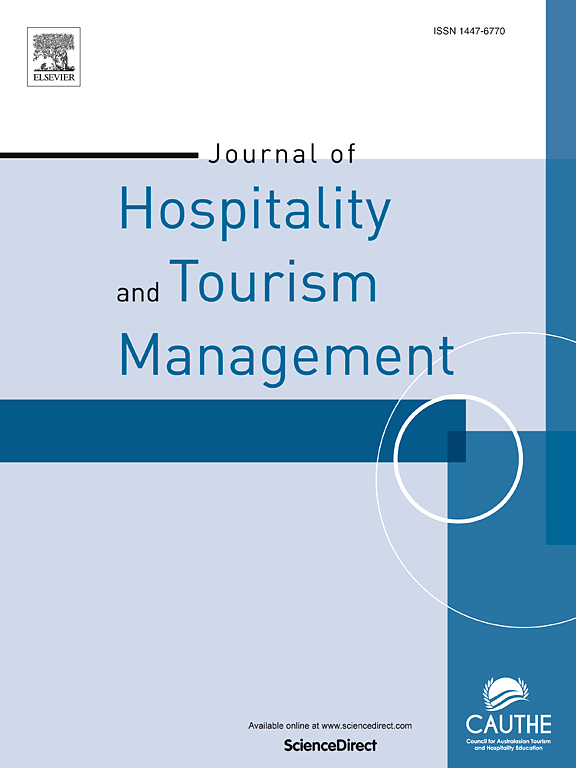脱离神秘:揭示一线酒店员工退出行为的评估过程
IF 7.8
1区 管理学
Q1 HOSPITALITY, LEISURE, SPORT & TOURISM
引用次数: 0
摘要
本研究运用保护动机理论和认知评价理论,探讨酒店一线员工如何评价工作压力源,以及这些评价如何导致退缩行为。利用PLS-SEM对419名被调查者的调查结果显示,在压力工作情境下,感知应对效能、感知脆弱性、感知严重性和感知成本通过两种不同的心理机制影响退缩行为。在感知到较高脆弱性、严重性和成本的情况下,较低的应对效能诱发无助感,促使退缩行为。相反,较高的应对效能与较高的成本感知会激发灵感,驱动退缩行为,以追求个人利益,避免工作压力源的伤害。乐观型员工在应对效能较高的情况下更易受到鼓舞,但在应对效能失效的严重压力情境下易产生无助感。本研究独特地探索了一线酒店员工对工作压力源的退缩行为的评估过程,改变了传统的基于假设认知对压力源进行分类的方法。本文章由计算机程序翻译,如有差异,请以英文原文为准。
Disengagement demystified: Unveiling the appraisal processes of frontline hospitality employee withdrawal behaviors
This study explores how frontline hospitality employees appraise work stressors and how these assessments lead to withdrawal behaviors, drawing upon protection motivation theory and cognitive appraisal theory. Using PLS-SEM, results from 419 respondents reveal that, in stressful work situations, perceived coping efficacy, perceived vulnerability, perceived severity, and perceived costs influence withdrawal behaviors via two distinct psychological mechanisms. Lower coping efficacy under conditions of perceived higher vulnerability, severity, and costs induces helplessness, prompting withdrawal behaviors. Conversely, higher coping efficacy with perceived higher costs triggers inspiration, driving withdrawal behaviors to pursue personal gain and avoid harm from work stressors. Optimistic employees tend to experience inspiration with higher coping efficacy but become susceptible to helplessness in severely stressful situations where coping efficacy fails. This study uniquely explores the appraisal processes that elucidate frontline hospitality employees’ withdrawal behaviors toward work stressors, shifting from the traditional approach of classifying stressors based on assumed perceptions.
求助全文
通过发布文献求助,成功后即可免费获取论文全文。
去求助
来源期刊
CiteScore
13.30
自引率
8.40%
发文量
177
审稿时长
45 days
期刊介绍:
Journal Name: Journal of Hospitality and Tourism Management
Affiliation: Official journal of CAUTHE (Council for Australasian Tourism and Hospitality Education Inc.)
Scope:
Broad range of topics including:
Tourism and travel management
Leisure and recreation studies
Emerging field of event management
Content:
Contains both theoretical and applied research papers
Encourages submission of results of collaborative research between academia and industry.

 求助内容:
求助内容: 应助结果提醒方式:
应助结果提醒方式:


